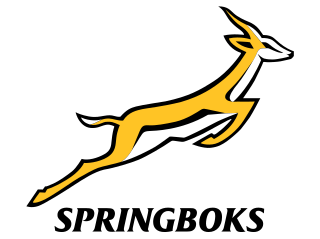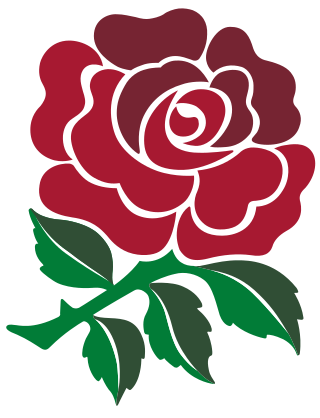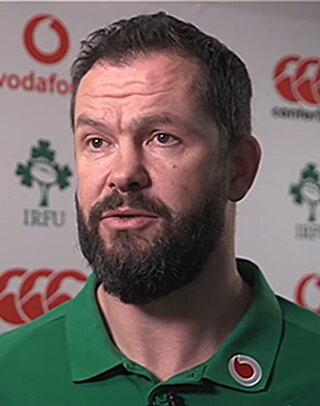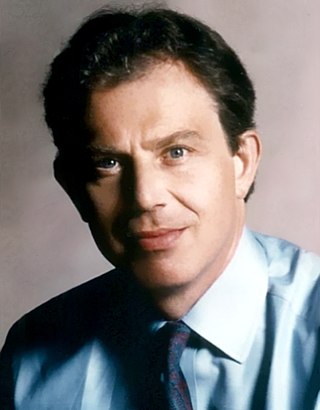
Charles I was King of England, Scotland, and Ireland from 27 March 1625 until his execution in 1649.

The Rugby World Cup is a men's rugby union tournament contested every four years between the top international teams. The tournament is administered by World Rugby, the sport's international governing body. The winners are awarded the Webb Ellis Cup, named after William Webb Ellis who, according to a popular legend, invented rugby by picking up the ball during a football game.

The House of Lancaster was a cadet branch of the royal House of Plantagenet. The first house was created when King Henry III of England created the Earldom of Lancaster—from which the house was named—for his second son Edmund Crouchback in 1267. Edmund had already been created Earl of Leicester in 1265 and was granted the lands and privileges of Simon de Montfort, 6th Earl of Leicester, after de Montfort's death and attainder at the end of the Second Barons' War. When Edmund's son Thomas, 2nd Earl of Lancaster, inherited his father-in-law's estates and title of Earl of Lincoln he became at a stroke the most powerful nobleman in England, with lands throughout the kingdom and the ability to raise vast private armies to wield power at national and local levels. This brought him—and Henry, his younger brother—into conflict with their cousin King Edward II, leading to Thomas's execution. Henry inherited Thomas's titles and he and his son, who was also called Henry, gave loyal service to Edward's son King Edward III.

The 1999 Rugby World Cup, was the fourth Rugby World Cup, the quadrennial international rugby union championship, the first World Cup to be held in the sport's professional era.

Martin Osborne Johnson CBE is an English retired rugby union player who represented and captained England and Leicester in a career spanning 16 seasons. He captained England to victory in the 2003 Rugby World Cup, and is regarded as one of the greatest locks ever to have played, and one of England's greatest ever players.

The South Africa national rugby union team, commonly known as the Springboks, is the country's national team governed by the South African Rugby Union. The Springboks play in green and gold jerseys with white shorts. Their emblem is a native antelope, the Springbok, which is the national animal of South Africa. The team has been representing South Africa in international rugby union since 30 July 1891, when they played their first test match against a British Isles touring team. They are currently the reigning World Champions and have won the World Cup on three occasions,. The Springboks are equalled with the All Blacks with three World Cup wins.

The 1995 Rugby League World Cup was held during October 1995 in the United Kingdom. It was the eleventh staging of the Rugby League World Cup and was marketed as the Halifax Centenary World Cup, reflecting the tournament's sponsorship and the fact that 1995 marked the centenary of the sport. Envisaged as a celebration of rugby league, the size of the competition was doubled, with four additional teams invited and England and Wales instead of Great Britain national rugby league team.

The England men’s national rugby union team represents England in men's international rugby union. They compete in the annual Six Nations Championship with France, Ireland, Italy, Scotland and Wales. England have won the championship on 29 occasions, winning the Grand Slam 14 times and the Triple Crown 26 times, making them the most successful outright winners in the tournament's history. They are currently the only team from the Northern Hemisphere to win the Rugby World Cup, having won the tournament in 2003, and have been runners-up on three further occasions.

Tajuan Edward "Ty" Law is a former American football cornerback who played in the National Football League (NFL) for 15 seasons, primarily with the New England Patriots. He played college football for the Michigan Wolverines and was selected by the Patriots in the first round of the 1995 NFL Draft. During his 10 seasons in New England, he received four Pro Bowl selections and two first-team All-Pro honors. A three-time Super Bowl winner with the Patriots, Law also holds the franchise record for interceptions. Law spent his final five seasons as a member of the New York Jets, Kansas City Chiefs, and Denver Broncos, earning a fifth Pro Bowl selection with the Jets. Ranking 24th in NFL career interceptions, he twice led the league in interceptions during the 1998 and 2005 seasons. He was inducted to the Pro Football Hall of Fame in 2019.

The England national rugby league team represents England in international rugby league.

Andrew David Farrell is an English professional rugby union coach and former dual-code rugby player who has been coaching the Ireland national team since 2020.

The England women's national football team, nicknamed the Lionesses, has been governed by the Football Association (FA) since 1993, having been previously administered by the Women's Football Association (WFA). England played its first international match in November 1972 against Scotland. Although most national football teams represent a sovereign state, England is permitted by FIFA statutes, as a member of the United Kingdom's Home Nations, to maintain a national side that competes in all major tournaments, with the exception of the Women's Olympic Football Tournament.

The 1995 United Kingdom local elections took place on Thursday 6 April 1995 in Scotland, and Thursday 4 May 1995 in England and Wales. The Conservative Party lost over 2,000 councillors in the election, while the Labour Party won 48% of the vote, a record high for the party in local elections.

The 1996 NFL draft was the procedure by which National Football League teams selected amateur college football players. It is officially known as the NFL Annual Player Selection Meeting. The draft was held April 20–21, 1996, at the Paramount Theatre at Madison Square Garden in New York City, New York. No teams chose to claim any players in the supplemental draft that year.
The 1995–96 season was the 116th season of competitive football in England.

Unitary authorities are a type of local authority responsible for all local government services for a district of England. They are constituted under the Local Government Act 1992, which amended the Local Government Act 1972 to allow the existence of counties that do not have multiple districts. They typically allow large towns to have separate local authorities from the less urbanised parts of their counties and originally provided a single authority for small counties where division into districts would be impractical. However, the UK government has more recently created much larger unitary authority areas, including a single authority for North Yorkshire, the largest non-metropolitan county in England, previously divided into seven districts.
The 1995 Yonex All England Open was the 85th edition of the All England Open Badminton Championships. It was held from 14 to 18 March 1995, in Birmingham, England.
The Women's European Cricket Championship was a women's cricket tournament for teams representing European countries. The first edition was contested in 1989.















